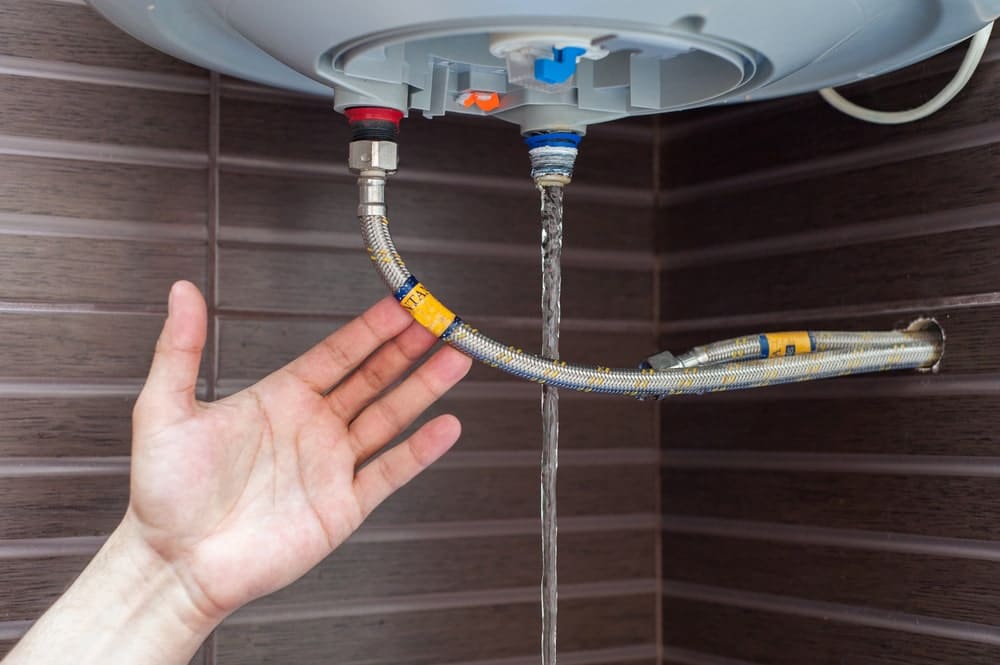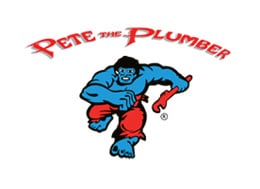
Leaks in the home are nearly always a major cause of concern for Calgary homeowners—and a leaking hot water tank can create a sense of panic.
Remaining calm and troubleshooting the issue is the best policy. It may be the first time you’ve ever had cause to check your hot water tank but a few simple steps can help you identify what the problem is and how to fix it before it leads to water damage in the home.
Let’s look at how water heaters work and what you can do to repair and prevent leaks in the future.
How does a hot water heater work?
A hot water tank is central to many Calgary homes and, while there are some differences between gas and electric water heaters, the basic principles remain the same:
- Cold water enters the tank through the inlet pipes
- A dip tube brings the cold water down to the bottom of the tank to be heated
- The water is heated with electric heating elements or gas burners
- With gas water heaters, fumes from the combustion gas escape through a round pipe (which also helps to warm the water)
- The water exits the heater through the outlet pipe and is dispersed around your home through the piping
What to do if your hot water tank is leaking
The following troubleshooting steps can help you identify the cause of a hot water tank leak and what to do about it:
Sometimes, so-called “leaks” are no more than innocent condensation.
When the room is very cold but the water heater is very hot, condensation naturally forms on the tank. This can appear to be a minor “leak”. If you use tissue paper to mop up the condensation on the outside of the heater and water gradually reforms evenly across the surface on it, the cause of the leak might be condensation and nothing much to worry about.
Next, rule out that other HVAC equipment in the vicinity of the water heater is not causing the leak, such as an air conditioning unit or gas furnace.
If these steps don’t resolve the issue, you’ll need to go deeper into troubleshooting your water heater.
Important! Don’t attempt anything beyond the first step without turning off the power to your water heater.
With an electric heater, this means switching off the heater switch on the circuit breaker. With a gas water heater, turn the gas shutoff valve at the base of the tank, near the gas line, to the OFF position (clockwise). If there is a switch, turn it off.
Most water heaters have a shutoff valve wheel on their cold-water supply inlet pipe (usually marked blue to distinguish it from the red, hot water outlet pipe) at the top of the water heater tank.
If the pipes aren’t colour-coded, simply do a touch test to make sure that you turn off the right supply pipe. If the pipe has a ball valve, turn it 180 degrees to switch off the supply.
Sometimes, it’s not obvious where the leak originates with a water heater. If you clean up the leak and it appears in the same place the next day, that should at least provide some clues to where the problem lies.
- For leaks at the top of the water heater: Inspect the cold-water inlet pipe and warm-water outlet pipes at the top. If the fittings or connections are loose, simply tighten the pipes carefully with a pipe wrench.
- For leaks at the side/bottom of the water heater: This is often a problem with the temperature and pressure relief valve (“T&P” valve), which is a safety feature to release water if too much water pressure builds up due to the water becoming too hot (above around 49 degrees Celsius). A faulty drain valve might also be the culprit, Valve issues generally require professional repairs/replacement.
- For leaks at the base of the water heater: Inspect the drain valve, which is located at the bottom of the water heater. If water is leaking from that area, the valve may not be closed tightly enough (a pipe wrench can tighten it or it may need replacement. Water pooling at the base could also be due to a crack in the hot water tank, which will require a replacement tank.
Don’t take any chances with your hot water tank. Too many things can go wrong to attempt repairs yourself beyond the simple tightening of a valve—and you might make problems worse. Call Pete the Plumber at (403) 257-1766 for professional water heater repairs.
What causes a leaky water heater?
The most common causes of a leaky water heater can be summarized as follows:
- Loose pipe connections: often fixed by simply using a wrench to tighten them.
- Valve issues: the drain valve or T&P valve may need professional repairs or replacement.
- Hard water: mineral buildup can cause deterioration or even cracks in the lining of the water heater tank.
Cracks in the heater tank from water expansion: this will require a replacement water heater.
How to prevent leaks from water heaters
Most hot water tanks will perform well for around 8-10 years or more if properly maintained.
The best way to prevent leaks is to schedule an annual maintenance check from a professional plumber. Your service technician will run a series of checks and perform routine maintenance that wards off potential problems and damage, such as cracks.
A standard hot water tank maintenance visit will include a checklist of items, including:
- Testing the thermostat
- Checking the T&P valve
- Flue pipe analysis (for gas water heaters)
- Inspection for leaks and visible cracks
- Cleaning, tightening, and adjusting the connecting pipes
- Checking the drain valve (cleaning and tightening as necessary)
- Replacing the anode rod (that attracts minerals) to prevent cracks forming if necessary
- Draining the unit to release sediment, calcium, and other minerals that accumulate
If you’re in Calgary, our licensed professional plumbers can help you check all of the above, fixing and preventing leaks from impacting your home’s hot water system. Call Pete the Plumber at (403) 257-1766 to arrange a visit.

